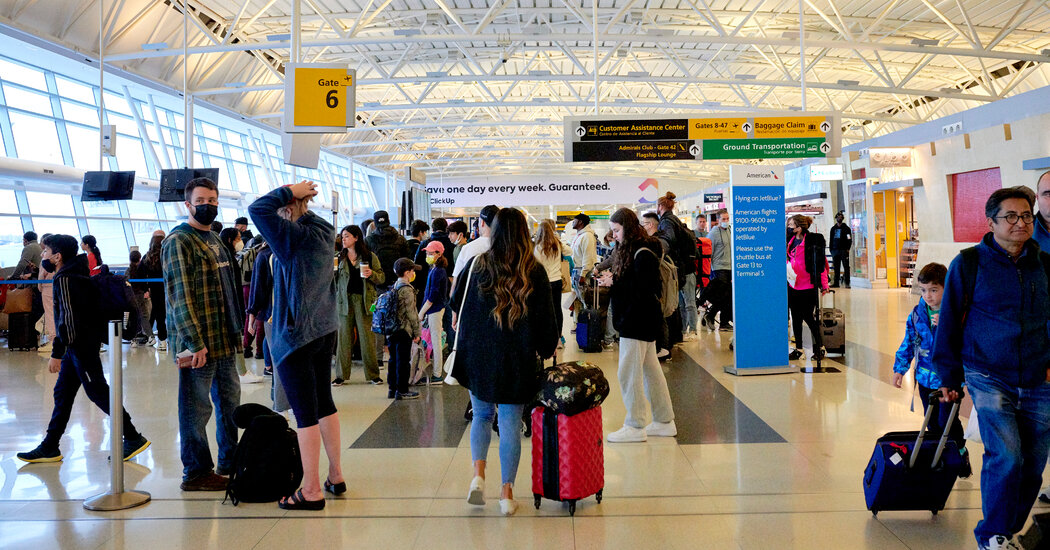Markets are convulsing, and inflation is squeezing consumers. But people are still flying. A lot.
Travel didn’t slow much after summer ended, and airline executives now say they expect changing and recovering travel patterns to keep them busy through the holidays and into next year.
“Many of the demand trends we saw emerge during the pandemic are becoming more consistent and shaping our commercial focus for 2023 and beyond,” Robert Isom, the chief executive of American Airlines, told reporters and analysts on a call on Thursday to discuss the carrier’s quarterly financial results.
The airline is feeling “very bullish about overall demand, even in an uncertain economic environment,” he added. Executives at United Airlines and Delta Air Lines share that optimism.
One big reason is that the ability to work remotely, full or part time, has allowed Americans to travel more and to combine personal and professional trips — a transformation that appears to be enduring, and one that carriers are planning around, executives say.
“There’s been a permanent structural change in leisure demand because of the flexibility that hybrid work allows,” United’s chief executive, Scott Kirby, said Wednesday on a call with reporters and analysts. “This is not pent-up demand. It’s the new normal.”
Other trends also contributed to strong financial results for the three airlines in the quarter that ended in September. Lucrative corporate travel and international travel continue to rebound. And even setbacks have a silver lining: Limits on airline growth have kept flights full.
United reported a $942 million profit, compared with $695 million for Delta and $483 million for American. All expect revenue and profits in the last three months of the year to be higher than during the same period in 2019, even though they will offer fewer flights.
The benefits to the industry of travelers’ newfound flexibility extend beyond revenue. Passengers have started to spread out travel, reducing swings in demand between busy weekends and slower days midweek. Holiday travel is spreading out, too, the executives said.
Traditionally, Labor Day weekend marks the end of the busy summer season, with travel slow until it picks up for Thanksgiving and Christmas. But flexibility from remote work encouraged people to keep flying last month, United said.
The airline had as much revenue on some September days as during peak summer travel, helping to make September the third best month…
Click Here to Read the Full Original Article at NYT > Travel…
